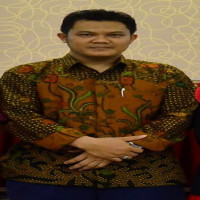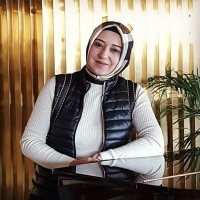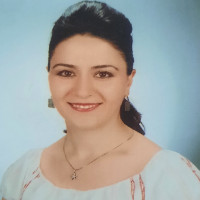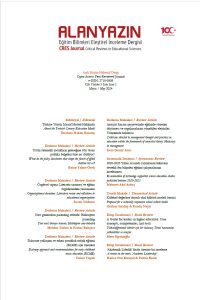Editöryal
Derleme Makelesi
Systematic Review
Systematic Reviews and Meta Analysis
7. Teknoloji Destekli Fen Bilimleri Eğitimi Çalışmalarının İncelenmesi (2020-2023): İçerik AnaliziTeorik makale
Book Review
Issue Reviewers



 0000-0002-0667-6808
0000-0002-0667-6808

 0000-0002-8629-0007
0000-0002-8629-0007
 0000-0002-5174-7548
0000-0002-5174-7548



 0000-0002-6739-8370
0000-0002-6739-8370



 0000-0003-2878-1120
0000-0003-2878-1120



Aim & Scope
ALANYAZIN (CRES Journal) is an international, refereed academic journal that is published twice a year. The aim of this publication is to promote recognition of scientific studies in the field of educational sciences, including books, theses, reports, and research. Additionally, it seeks to critically evaluate scientific knowledge through review articles, provide a holistic perspective on scientific knowledge and publications in the field of educational sciences, and serve as a bridge between theory and practice for scientists and institutions working in the field.
ALANYAZIN (CRES Journal) aims to provide a comprehensive and balanced view of educational sciences through the publication of critical and integrative scientific review articles. These articles cover a wide range of interdisciplinary fields, including philosophy, sociology, psychology, anthropology, biology, political science, economics, business, information technologies, statistics, and architecture.
Author Guidelines
Manuscripts submitted to the ALANYAZIN (CRES Journal) should adhere to the following guidelines:
- Articles are expected to be between 1000 and 8000 words and prepared using the ARTICLE TEMPLATE in MS Word.
- Tables, figures, pictures, and charts should be appropriately sized for the journal page. If necessary, they may be presented in a smaller font size.
- The sequential numbering of tables, figures, and other visuals in the manuscript is advised. If footnotes are necessary, they should be placed just below the body of the table and indicated with lower case descriptive letters.
- Tables should be prepared in accordance with the formal standard in the article template. It is suggested to limit the use of tables as much as possible.
- It is recommended that the author's institution, contact information, and copyright transfer agreement are prepared and uploaded using the relevant templates.
- The study should contain a title in both Turkish and English, an abstract of 50-150 words with 3-5 keywords in each language, and adhere to the referencing guidelines of the
APA (American Psychological Association) Style 7th Edition, which is the style used by ALANYAZIN Journal. - In both the citation and bibliography sections, it is advisable to follow the spelling rules and format specified in the Publication Manual of the American Psychological Association, published by the American Psychological Association. The writing guide and article template provide detailed explanations and examples of in-text citation and reference formatting.
Article formatting rules:
- Articles whose fonts do not match the styles in the template will be resubmitted for editing.
- After pasting the full text of the article onto the template, check that the fonts match the styles on the template.
- Once the paragraphs have been selected, select the ParagraphText format from the Format menu.
- There should be no spaces in any part of the text when you hit the 'enter' key.
- The headings in the article should be completely filled in at the time of publication.
- Commas should be used in decimal notation.
- To apply the formatting styles in the article, the formatting style for the relevant section should be selected from the Styles section above for each text transferred to the template. Font size and type should be checked.
- Page headers should be added at the publication stage in accordance with the template.
- The manuscript should not exceed 20 pages.
- Figures or tables must be preceded and followed by information describing and explaining the figure or table.
- Different tables or figures should not be used consecutively without explanation.
- There should be no spaces before or after tables and figures.
- In tables, do not create rows with the "enter" key and columns with the "tab" key.
- References, appendices and the extended abstract section should start on a new page.
- The Extended Abstract section should be a minimum of 750-1000 words. This section should be prepared according to the given heading system. In extended abstracts, English should be used for Turkish articles and Turkish for English articles.
- If available, "author's name and surname" should be used in self-references in the text and in the bibliography.
Information that should be included in articles at the time of publication:
- Author names, surnames, institutions, email addresses, and ORCID information,
- Extended abstract,
- Ethical approval,
- Researcher contribution rate,
- Support and acknowledgement,
- Declaration of conflicts.
Note: ALANYAZIN Journal accepts book reviews prepared for books published in the last five years. The book to be evaluated must be an original study and must not be more than five years from the date of publication.
Ethical Principles and Publication Policy
In ALANYAZIN (CRES Journal),in order to be accepted in evaluation /assessment periods/process. Studies/articles are required some fundamental criteria.
The studies are aimed to BE SENT to ALANYAZIN (CRES Journal) should:
- be about or related to education,
- not be published before and not be sent to another platform or journal for publication purpose,
- be one of the types of the article that ALANYAZIN (CRES Journal) prefers to publish,
- be written by following the rules and format of APA (American Psychological Association) the Style 7th Edition,
- fit/suitable for ALANYAZIN (CRES Journal) article template.
Price Policy
In our journal, no fees are charged to the authors. Also, no fee is paid to the authors or referees.

